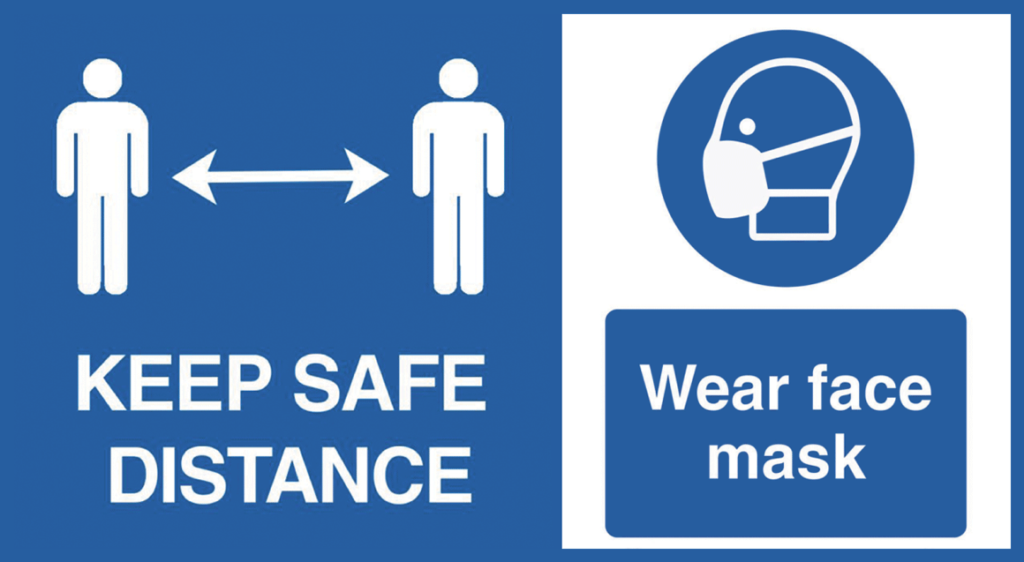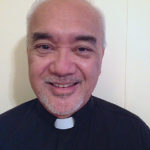Commencements Are About Beginnings —“New Beginnings”
John A.H. Tomoso†
Our lives are full of commencements, full of beginnings. I like having to experience a beginning. For instance, I feel like this worldwide COVID-19 pandemic affords us, in a positive way, to experience a new beginning; of living a more healthy, physically distant life, one in which we will be less susceptible to catching germs and viruses that live all around us. You know, the world has known many pandemics. Hopefully, we will be learning a lot from these pandemics, especially from the 1918 Influenza (Spanish Flu) pandemic, which killed an estimated 50 million people. It is estimated that because of this pandemic, the average life expectancy in the U.S. dropped by 12 years! Think of the beginnings that flowed from that aftermath!
We are in the season of Commencements for students in our schools and colleges. They are in a time of New Beginnings. Each student can look forward to the rest of their life, having graduated and commencing into something new. Yet, this COVID-19 pandemic has put a cap on celebrating this milestone, in a way that has seen the virtual celebration becoming the norm; no crowds, no dressing and proudly marching in caps and gowns, no walking across the stage to cheers of family and friends, no lei piled high and above bouncing heads. But these are commencements, beginnings, nonetheless. What do these mean as we live through this pandemic, which has inexorably changed our lives into what is being called a new normal?
Commencements are about beginnings. But they have always been about starting something new and getting into a new normal, with a new set of expectations, rules, routines, obligations and responsibilities. With the COVID-19 pandemic and with government intervention and public health policies, per more robust and comprehensive data collection and analytics, the depth and breadth of our knowledge and understanding is unprecedented. It is unprecedented in the way that it has not only changed our outlook on health but also on how we are to be relating to, in relationship with one another. For our students, the COVID-19 pandemic means a lot, especially if we breakdown the new set cited above.

Expectations
Social (Physical) Distance has already entered the lexicon of everyday speech. Expect that folk will look at you to make sure that you are far enough away. The idea of personal space is being redefined. Can this lead to the profession one enters or the job one wants to have?
Rules
Social and cultural norms are being redefined as well. Here in Hawai‘i, where our social experiences of how close we come to each other; hugging, kissing, shaking hands, exchanging breath (the Hawaiian practice of greeting called honi), opening doors for someone else and sitting close and next to each other are now being seen as perhaps, unhealthy. Think of the new job descriptions that must be written or rewritten; the workspaces and work environments that must be rebuilt. Restaurants wanting to re-open must make their dining rooms less dense and more expansive but with less chairs and tables.
Routines
Daily routines will now have to include ensuring that washing, grooming, and clothing/vesturing comply with new health and social parameters. Walking, biking, drive and bus time schedules need to be recalibrated. There are schools and other educational institutions now scheduling virtual classes to replace what heretofore was physical proximity and gathering together. Working virtually is already a routine for many.
Obligations
Taking care of one another has taken on a more intimately demanding, less rushed reality. Perhaps, in more ways than one, the obligations we all have, as we continue to live with each other and to build community and stability, will still need to be accountable but in a more lingering and less by-the-clock way. How one graduates from high school, from college or from training for a job or a career, will now be measured on how one sees his or her obligation to bring others along.
Responsibilities
We all need to be accountable to each but this mutual courtesy of being responsible and respectful to each other, now needs to include the thinking that all of this is not about you but about others around you. That face mask you need to wear now is about keeping those around you healthy. Earning that college degree or getting that job, will now depend on how responsible you are for the sake of others.
We are, indeed, commencing into a new way of life, a new normal. Plagues—this pandemic—does not discriminate. It is rampant in urban and rural, even isolated areas, from the densely to the sparsely populated. In the 1918 pandemic, young adults, usually unaffected by these types of infectious diseases, were among the hardest hit groups along with the elderly and young children.
We congratulate our graduates and wish them every success. But we must caution them that as they commence into this new normal, to be safe and healthy, thinking of others, especially those they live closely with, their family and loved ones. As they commence, we ask them to think of the responsibilities that come with their academic accomplishments. In May in the year 2020 this at the very least, includes wearing a face mask when going out and about.
 John A. Hau‘oli Tomoso† is a Priest in the Episcopal Diocese of Hawai‘i and a retired Social Worker, with 42 years of licensed practice. Born and raised on Maui, he lives in Kahului with his wife, Susan D. Tomoso, who is a retired Educator, with 30 years of teaching experience.
John A. Hau‘oli Tomoso† is a Priest in the Episcopal Diocese of Hawai‘i and a retired Social Worker, with 42 years of licensed practice. Born and raised on Maui, he lives in Kahului with his wife, Susan D. Tomoso, who is a retired Educator, with 30 years of teaching experience.
